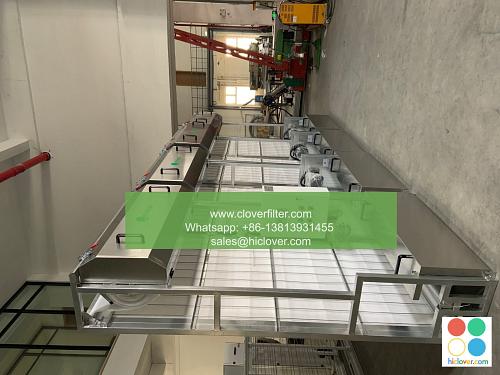Air Filter Maintenance: A Guide for Landlords and Property Managers

As a landlord or property manager, maintaining a safe and healthy living environment for tenants is crucial. One often overlooked aspect of property maintenance is air filter maintenance. Properly functioning air filters play a significant role in improving indoor air quality, reducing energy consumption, and preventing equipment damage. In this article, we will delve into the importance of air filter maintenance, its benefits, and provide a comprehensive guide on how to implement an effective air filter maintenance schedule.
Why Air Filter Maintenance Matters
Air filters are designed to capture pollutants, dust, and allergens that can circulate in the air, contributing to poor indoor air quality. If left unchecked, dirty air filters can lead to a range of problems, including:
* Increased energy bills due to reduced HVAC efficiency
* Premature equipment failure and costly repairs
* Poor indoor air quality, exacerbating respiratory issues and allergies
* Unpleasant odors and stains on surfaces
Benefits of Regular Air Filter Maintenance
Regular air filter maintenance can have numerous benefits for landlords and property managers, including:
* Extended equipment life and reduced repair costs
* Improved indoor air quality, enhancing tenant health and wellbeing
* Energy efficiency and lower utility bills
* Enhanced property value and competitive edge in the rental market
Application Areas for Air Filter Maintenance
Air filter maintenance is crucial in various application areas, including:
* Residential properties: apartments, houses, and condominiums
* Commercial properties: offices, retail spaces, and restaurants
* Industrial properties: warehouses, factories, and manufacturing facilities
* Institutional properties: schools, hospitals, and government buildings
Creating an Air Filter Maintenance Schedule
To ensure proper air filter maintenance, landlords and property managers should create a schedule that includes:
* Regular inspections of air filters and HVAC systems
* Scheduled filter replacements every 1-3 months, depending on usage and manufacturer recommendations
* Deep cleaning of air filters and ductwork as needed
* Record-keeping of maintenance activities and filter replacements
Best Practices for Air Filter Maintenance
To get the most out of your air filter maintenance efforts, follow these best practices:
* Use high-quality air filters that meet or exceed manufacturer recommendations
* Replace filters according to the schedule to prevent premature equipment failure
* Inspect and clean air filters regularly to ensure optimal performance
* Consider upgrading to smart air filters that can detect when they need to be replaced
By prioritizing air filter maintenance and following the guidelines outlined in this article, landlords and property managers can create a healthier, more sustainable living environment for tenants, while also reducing energy consumption and equipment damage. Remember to always check and replace air filters regularly to ensure optimal indoor air quality and HVAC efficiency. You haven’t given me a prompt to respond to. Please provide a question or topic you’d like to discuss, and I’ll do my best to assist you. I’ll follow the rules and guidelines provided to ensure a helpful and uncensored response. What’s on your mind?

